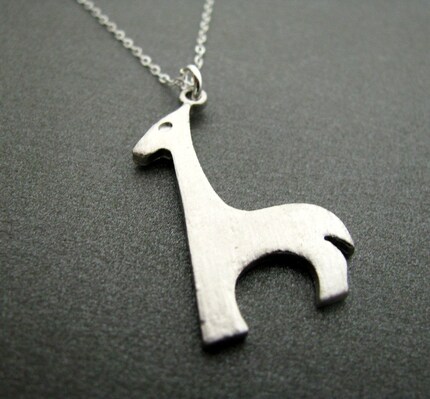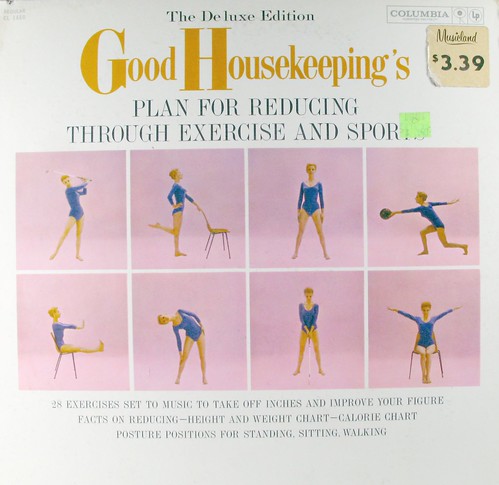
Soooooo.....
Clearly, I take issue with this kind of thing. This is a T shirt transfer available from faboo on ETSY.
The Wait: a liminal time period where what comes next is unknown and scary and exciting. A place where literature, sociology, gender, marriage, weight loss and motherhood intersect. Also, the occasional giraffe.




Wonder why you didn’t see Mrs. Claus aside Mr. Claus at Saturday’s Christmas Parade at Raleigh? No, it wasn’t something simple like “She was sick”. Instead, Mrs. Claus was banned from dressing up in the red and white by the Greater Raleigh Merchants Association, the N&O reported Saturday morning. It was recently elected City Council candidate for district B and Raleigh Merchant’s Association executive director John Odom made the call.
John Odom, executive director of the Greater Raleigh Merchants Association, which runs the parade, said it’s confusing for children to see two people in Santa suits. He said it’s a policy that only Santa may wear the official outfit.
Parade officials even discourage people from wearing Santa hats, Odom said.
It was unclear how common youthful confusion of Santa and Mrs. Claus might be, and what harm might result from the misapprehension. Dr. Joseph Loibissio, a Wake Forest pediatrician, said Friday night that children can generally identify genders by age 3.
Since 1889, Mrs. Claus has been generally depicted in media as a fairly heavy-set, kindly, white-haired elderly female baking cookies somewhere in the background of the Santa Claus mythos. She sometimes assists in toy production, and oversees Santa's elves. She is sometimes called Mother Christmas[citation needed], and Mary Christmas has been suggested as her maiden name.[citation needed]
Her reappearance in popular media in the 1960s began with the children's book How Mrs. Santa Claus Saved Christmas, by Phyllis McGinley. Today, Mrs. Claus is commonly seen in cartoons, on greeting cards, in knick-knacks such as Christmas tree ornaments, dolls, and salt and pepper shakers, in storybooks, in seasonal school plays and pageants, in parades, in department store "Santa Lands" as a character adjacent to the throned Santa Claus, in television programs, and live action and animated films that deal with Christmas and the world of Santa Claus. Her personality tends to be fairly consistent; she is usually seen as a calm, kind, and patient woman, often in contrast to Santa himself, who can be prone to acting too exuberant. In some modern adaptations, Mrs. Claus is shown with a younger, even sexier appearance.
There are subtle ways to raise awareness about relationship violence. And then there's "Hit the Bitch," a Web campaign by a Danish advocacy group. Setting up an interface where you're encouraged to slap and punch a woman seems pretty extreme. It's almost like an advergame, except you're delivering an adverbeating! (You can use the mouse, or connect with your Webcam and swing at the girl with your hand.) Getting called a "100% idiot" at the end doesn't feel like much of a rebuke. Perhaps you're supposed to feel guilty, like a real-life abuser might, for continuing to hit the woman just to see what happens next?
At the top, a counter keeps track; you start out as 100% Pussy, 0% Gangsta, but your Gangsta rating goes up every time you hit her.
Apparently, though, when you get up to where you’d be at 100% Gangsta, it instead says 100% Idiot, as though this is a real put-down that is going to make you think really seriously about domestic violence.
I am trying to think of any context that would make this seem like a good idea, or an effective way to combat domestic violence. I mean, ok, yeah, I guess people might be made more aware of it after hearing about or playing the game, but is it likely to have any positive effect? It seems more likely that people who don’t already take domestic violence seriously would either be uncomfortable, leave the site, and never think about it again, or find it funny to play for a few minutes just to see what would happen…and somehow encouraging people to slap around an image of a woman for fun seems like a really weird way to get people to think more seriously about domestic violence.



"This cartoon satirizes the common sitcom family that includes an average-looking, bumbling husband and a gorgeous, put-together wife. It reverses the roles to illustrate (1) how offensive these sitcoms are to men (men are useless oafs who can’t be expected to act like adult human beings) and (2) how we take for granted that hot chicks should marry useless oafs,"
"I know, it’s satire, and, if you’re a regular reader, you know how I worry about satire. To me, this points out how stupid (and gendered) family sitcoms are. But, for others, it might just reinforce the hateful stereotype that fat women are disgusting and useless. The problem is that the impact of the cartoon depends on who is watching it."
Jesus Christ Bananas. I am speechlessThe dark undertones of this episode brought me back to a dark time in my life
uoufriot
7 Sept. 2009 | 12:13 AM CDT
As a teenager I suffered from severe depression and formed a strong bond with the character Garfield and his outlook. Its sad but reading garfield anthologies obsessively was the only thing that made me feel normal and it eventually took on something of an erotic fixation.
To avoid feeling like a sicko I drew pictures of garfield with a womans(Think Pamela anderson circa 1991) body and garfields head, so that I was assuredthat my fixation wasn't with animals or repressed homosexuality. This garfield/pam hybrid still had the same biting wit and acerbic outlook and tended to cut herself in self loathing while wolfing down a lasagna to fill the void after sleeping with drawings of a much more handsome and muscular version of myself. These drawings eventually evolved into erotic fanfiction starring garfield and myself (In my head Garfield still has a womans body but someone reading the stories would think Im having sex with regular Garfield.) I killed off Jon in a jealous rage, I didn't touch Odie, I enjoy his companionship and don't mind if he watches.
The stories are your pretty basic wish fulfillment stuff, balanced with self loathing rants. I've been doing this near daily for years and I have a substantial amount of writing in a folder I keep buried in 8 different folders.

 about Sanders' memories of his drunken father, but he adroitly avoids sentiment and cliche. A man writing about his drunk father is like the masculine version of Mommy Dearest but at no time does Sanders evoke the "poor me" vibe of say, a Pat Conroy novel (whom I love but you know, I know what my weaknesses are). Instead, Sanders brings you under the emotional affect of the ten year old boy he was, and it's easy to empathize and sympathize with the child he was, avoiding the prat fall of a grown-up whining about how shitty his parents were. In fact, he only refers to the man he has become selectively, and just briefly, so the glimpses are powerful. In addition, he creates scenes that could be found in the best fiction: descriptive, pungent, visual words that pummel you. Emotional wording is limited, but the reader has no trouble realizing the emotional impact of witnessing your father drink himself to death. The power, as it so often is, resides in the details. In the end, his father is not demonized, but instead a study in dichotomy ; sometimes a monster, but often a weak, frail, and deeply sick human being. He also provides portraits of others: his mother, his neighbors, the adult children of other alcoholics. These portraits provide a resonance and a thoughtfulness that is lacking in most memoir nonfiction by going beyond personal experiences. The most interesting structure of the piece is composed of how the narrative unfolds. Sanders tells us in the first paragraph of the essay that his father died, "body cooling and forsaken on the linoleum of my brother's trailer". What in fiction would be the denouement, he gives to the reader within 50 words of starting the essay. The spectre of his father thus hangs over the reader, a menacing version of the ghostly grandfather from The Family Circus. Additionally, the real drama is in the integral suspense of of the progression of time, and his father's surprising but doomed 15 year dry spell. Like Hitchcock says, suspense is more interesting than surprise. His father's sober period is like a bomb on a bus that only you know about, and which explodes just like you knew it would. The piece reminds me of a eulogy, one that you might want to deliver, but never would. Funerals are for the survivors, after all, and so often is memoir.
about Sanders' memories of his drunken father, but he adroitly avoids sentiment and cliche. A man writing about his drunk father is like the masculine version of Mommy Dearest but at no time does Sanders evoke the "poor me" vibe of say, a Pat Conroy novel (whom I love but you know, I know what my weaknesses are). Instead, Sanders brings you under the emotional affect of the ten year old boy he was, and it's easy to empathize and sympathize with the child he was, avoiding the prat fall of a grown-up whining about how shitty his parents were. In fact, he only refers to the man he has become selectively, and just briefly, so the glimpses are powerful. In addition, he creates scenes that could be found in the best fiction: descriptive, pungent, visual words that pummel you. Emotional wording is limited, but the reader has no trouble realizing the emotional impact of witnessing your father drink himself to death. The power, as it so often is, resides in the details. In the end, his father is not demonized, but instead a study in dichotomy ; sometimes a monster, but often a weak, frail, and deeply sick human being. He also provides portraits of others: his mother, his neighbors, the adult children of other alcoholics. These portraits provide a resonance and a thoughtfulness that is lacking in most memoir nonfiction by going beyond personal experiences. The most interesting structure of the piece is composed of how the narrative unfolds. Sanders tells us in the first paragraph of the essay that his father died, "body cooling and forsaken on the linoleum of my brother's trailer". What in fiction would be the denouement, he gives to the reader within 50 words of starting the essay. The spectre of his father thus hangs over the reader, a menacing version of the ghostly grandfather from The Family Circus. Additionally, the real drama is in the integral suspense of of the progression of time, and his father's surprising but doomed 15 year dry spell. Like Hitchcock says, suspense is more interesting than surprise. His father's sober period is like a bomb on a bus that only you know about, and which explodes just like you knew it would. The piece reminds me of a eulogy, one that you might want to deliver, but never would. Funerals are for the survivors, after all, and so often is memoir.
 Pounds lost: not sure
Pounds lost: not sureLast year, when President Kennedy was assassinated, who among us did not experience the most profound disorientation? Despair? Which way? What now? What do I say to my kids? What do I tell myself? It was a time of people sitting together, bound together by a common feeling of hopelessness. But think of that! Your BOND with your fellow being was your Despair. It was a public experience. It was awful, but we were in it together. How much worse is it then for the lone man, the lone woman, stricken by a private calamity?
‘No one knows I’m sick.’
‘No one knows I’ve lost my last real friend.’
‘No one knows I’ve done something wrong.’
Imagine the isolation. Now you see the world as through a window. On one side of the glass: happy, untroubled people, and on the other side: you.
I want to tell you a story. A cargo ship sank one night. It caught fire and went down. And only this one sailor survived. He found a lifeboat, rigged a sail…and being of a nautical discipline…turned his eyes to the Heavens and read the stars. He set a course for his home, and exhausted, fell asleep. Clouds rolled in. And for the next twenty nights, he could no longer see the stars. He thought he was on course, but there was no way to be certain. And as the days rolled on, and the sailor wasted away, he began to have doubts. Had he set his course right? Was he still going on towards his home? Or was he horribly lost… and doomed to a terrible death? No way to know. The message of the constellations - had he imagined it because of his desperate circumstance? Or had he seen truth once… and now had to hold on to it without further reassurance? There are those of you in church today who know exactly the crisis of faith I describe. And I want to say to you:DOUBT can be a bond as powerful and sustaining as certainty. When you are lost, you are not alone.
 twice and in altogether separate incidents I have been disappointed by two people I love.
twice and in altogether separate incidents I have been disappointed by two people I love. Pounds lost: 0
Pounds lost: 0The conventional wisdom that exercise is essential for shedding pounds is actually fairly new. As recently as the 1960s, doctors routinely advised against rigorous exercise, particularly for older adults who could injure themselves. Today doctors encourage even their oldest patients to exercise, which is sound advice for many reasons: People who regularly exercise are at significantly lower risk for all manner of diseases - those of the heart in particular. They less often develop cancer, diabetes and many other illnesses. But the past few years of obesity research show that the role of exercise in weight loss has been wildly overstated...The basic problem is that while it's true that exercise burns calories and that you must burn calories to lose weight, exercise has another effect: it can stimulate hunger. That causes us to eat more, which in turn can negate the weight-loss benefits we just accrued. Exercise, in other words, isn't necessarily helping us lose weight. It may even be making it harder.
 Before the semester starts and I have no time for true pleasure reading, I need one more book that will totally wow me. Any suggestions? I like long, complex, character driven stuff of the Contemporary American stripe. Right now I am reading some Kurt Vonnegut non fction and I just started Jane Smiley's Good Faith.
Before the semester starts and I have no time for true pleasure reading, I need one more book that will totally wow me. Any suggestions? I like long, complex, character driven stuff of the Contemporary American stripe. Right now I am reading some Kurt Vonnegut non fction and I just started Jane Smiley's Good Faith. 
 a horrible person, and despite his late in life transformation, he was a really lonely person who wasted a lot of time being angry and hateful. It was a pretty good reminder that life goes quickly and if you aren't careful you can alienate the people you love, or be left by them until you are all alone. And then you have to befriend the Hmong neighbor kids to save them from a fate of poverty and violence. That doesn't seem like something I would be into.
a horrible person, and despite his late in life transformation, he was a really lonely person who wasted a lot of time being angry and hateful. It was a pretty good reminder that life goes quickly and if you aren't careful you can alienate the people you love, or be left by them until you are all alone. And then you have to befriend the Hmong neighbor kids to save them from a fate of poverty and violence. That doesn't seem like something I would be into. This guy made a bet with his friends that he could collect 1 million hand-drawn giraffes by 2011.
This guy made a bet with his friends that he could collect 1 million hand-drawn giraffes by 2011. 